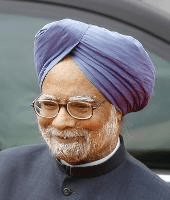Indian External Affairs Minister S. M. Krishna’s visit to Israel earlier this month produced a number of significant outcomes, notably proposals for the opening of a new Israeli consulate in Bangalore and a bilateral free trade agreement, as well as Israeli support for a permanent Indian seat on the U.N. Security Council. More importantly, the trip highlighted the degree to which solidifying relations with Israel, and in particular maintaining robust defense ties, has become a bipartisan foreign policy consensus in India.
India recognized the Jewish state in 1950 but eschewed the establishment of full diplomatic relations during the Cold War, in part because India, which preferred nonalignment, was reluctant to engage with a formal ally of the U.S. In parallel, India’s vigorous support for the Palestinian cause, which included voting in favor of the 1975 General Assembly resolution that equated Zionism with racism, at times verged on anti-Israel hysteria. However, the most important factor in India’s diplomatic alienation of Israel was Pakistan. To counter the influence of Pakistan’s Israel-bashing on other Islamic states as well as on India’s own Muslim population, India often tried to outdo Pakistan in opposing Israel.
For a number of reasons, the end of Cold War brought a period of engagement, leading to normalized relations in 1992. First, post-Cold War India was able to buck the inertia born of nonalignment and Third World solidarity, notions whose relevance was undermined by the dissolution of the Soviet Union. Second, the reality of U.S. hegemony became apparent to Indian decision-makers. The loss of Soviet diplomatic support, upon which India often relied to navigate the rough waters of international relations (the Bangladesh War being a prominent example), came as a serious blow for New Delhi. In a unilateral world order, opening up to Israel was part and parcel with the crucial goal of improving relations with U.S. Third, given the turmoil that had engulfed Russia’s defense industry, India saw Israel as an alternative source of military supplies. Fourth, the consummation of the Madrid Peace Process and the acceptance of Israel by Islamic nations in the Middle East undercut any rationale for India to resist closer bilateral ties. Finally, India came to understand the importance of pursuing an independent foreign policy in the Middle East, one de-linked from Pakistan. An extremely pro-Palestinian foreign policy had not helped India curry favor with the Islamic states, which were naturally inclined toward Pakistan. Moreover, India had gained nothing by diplomatically isolating Israel.

